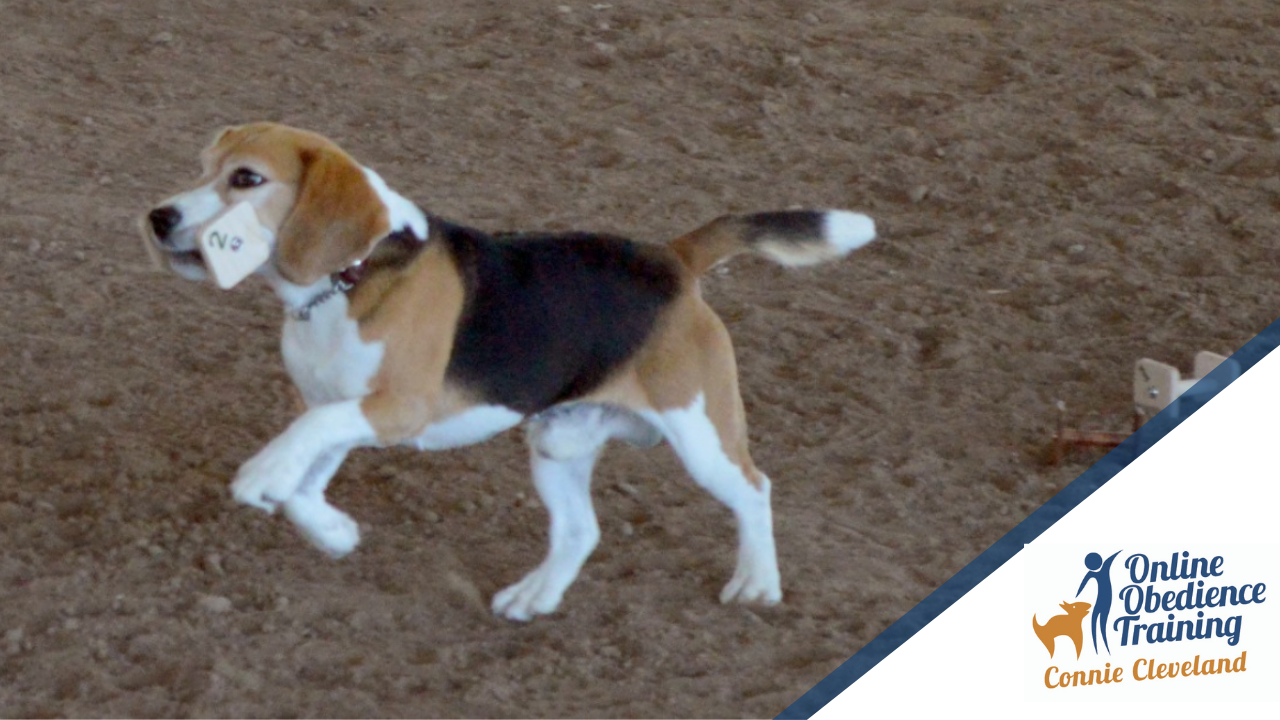Never Waste A Mistake!
Apr 05, 2021
When you are competing, no matter the level, it is easy to let the cloud of disappointment overwhelm you when our dog makes an error in the ring. A failure can feel like a waste; a waste of time, effort, and money. A substantial deduction can deflate us as the possibility of winning, or even placing is diminished.
You can’t have a “do-over,” however, you can make it your goal to get the most out of the rest of your performance with these simple strategies.
You never want to waste a mistake!

🥇 Fight Disappointment- Choose to Recover!
When your dog makes a mistake, IMMEDIATELY tell yourself, "That is the only mistake we will make today!" and then continue your performance with that determination. You can’t take the moment back, but you can salvage the rest of the performance. Be determined to do everything possible to continue with a flawless performance.
If you allow the disappointment of the error to overwhelm you, one mistake can become many mistakes. You will not only be disappointed by that mistake, but you will end up disappointed in the entire performance. As a junior tennis player, when I missed a shot, my father, and tennis coach, would tell me to “shake it off.” That is exactly what we should do when our dog makes a mistake in the ring – shake it off!
🥇 One Exercise at a Time
When you prepare to enter the ring, say to yourself how many exercises you have to do. That way, you will tackle them one at a time, not worrying about what you have already done, or what is left to come.
It is thrilling to watch your dog perform an exercise perfectly that he has previously struggled with. However, that is the worst time to let your guard down. The easiest exercise to fail is the one immediately following the exercise you thought you were going to fail!
If you breathe a sigh of relief, or take a moment to celebrate, when your dog successfully performs his weakest exercise, you may let your guard down and unbelievably, fail the next exercise. This is not unique to competition obedience. It is true in every sport. The professional golfer misses the easy putt after an amazing shot onto the green. The tennis player wins the game when his opponent is serving, and then lets his opponent win the next game when the serving advantage is his. Don’t let that happen to you!
🥇Do Not Disregard a Mistake as a Fluke!
If you are competing multiple days, never consider a mistake that happens early in the weekend to be a fluke. Assume it will happen again and address the error before you compete again.
For example, imagine your dog fails the drop on recall because as you give the signal to drop, dogs start barking, causing your dog to become distracted. You think, that was bad luck. I should just use a verbal command. Stop! Before you change your performance, evaluate your dog’s performance. He got distracted! This time it was dogs barking, but what else could it be? It is always safer to treat the symptom (i.e. Your dog was distracted by barking, what else might distract him?) than to blame it on the circumstance (i.e. It was unusual for dogs to bark at the exact moment I was giving my signal).
Every time you go in the ring, make it your primary aim to gather information about the aspects of your performance that did not meet your expectations. The information your five-minute performance provides should direct the focus of your subsequent training sessions. By carefully evaluating your performance, no performance is wasted!
🥇 Analyze - Exercise Problem or an Attitude Problem?
Your performance will reveal when we have an exercise that is not ready for competition. For example, your dog makes an honest error, and upon reflection you realize that he does not yet understand how to perform in a new situation. For example, your dog is performing the go-outs fast and straight in all the places you train, but he goes to the show and looks lost. It is likely that your dog does not have enough experience to perform in a new location.
Sometimes our dogs are distracted or disinterested. A performance may start well but deteriorate as it progresses. For example, in Open A, the Broad Jump is last. Upon evaluation you realize that your dog was slow on the Retrieve on the Flat, almost missed the jump on the return over the jump, and then walked the Broad Jump. This may indicate your dog had become disinterested and distracted culminating in a failure of the last exercise. In this case, the challenge is to improve the dog’s attitude as soon as it deteriorates as opposed to working harder on the Broad Jump.

When we compete, we will both succeed and fail.
We can learn from either. Make it your goal to let every trip into the ring better prepare you for the next!
Did you enjoy the article?
Signup to receive more free training TIPS & TRICKS from Connie.

